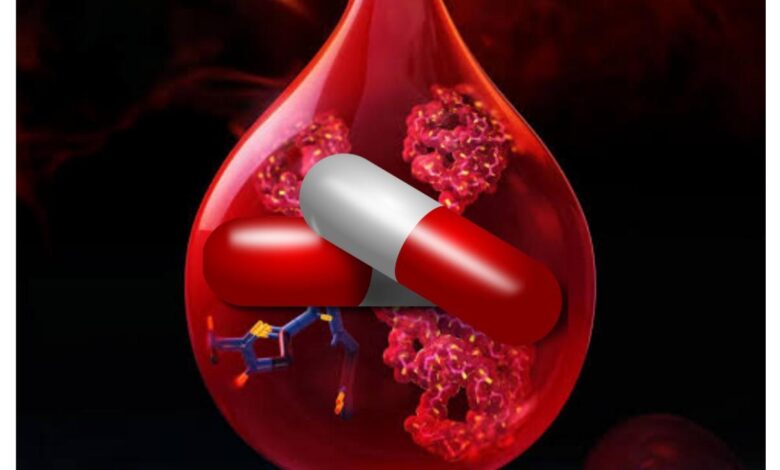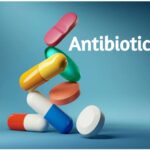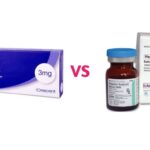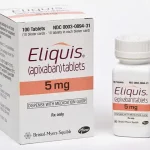Anticoagulants: Uses, Types, Side Effects, List, Examples

Anticoagulants are medicines that help prevent blood clots. They’re given to people at a high risk of getting clots, to reduce their chances of developing serious conditions. A blood clot is a seal created by the blood to stop bleeding from wounds. While they’re useful in stopping bleeding, they can block blood vessels and stop blood flowing to organs such as the brain, heart, or lungs if they form in the wrong place.
Anticoagulants work by interrupting the process involved in the formation of blood clots. They’re sometimes called “blood-thinning” medicines, although they don’t actually make the blood thinner.
Why are they used?
Anticoagulant medicine is used in patients to prevent blood clots from forming in veins, arteries, the heart, and the brain of a patient. For example, if the clot travels to the patient’s heart it can cause a heart attack or if one forms in the brain it may cause a stroke or TIA (mini-stroke, transient ischemic attack).
Examples of diseases and health conditions that require treatment with anticoagulants to reduce the risk of clots forming, or are used to prevent life-threatening problems include:
- Deep vein thrombosis (DVT)
- Heart attack
- Stroke
- For the prevention or treatment of:
- Pulmonary embolism
- Blood clots within venous and arterial catheters
- Stent thrombosis
- Blood clots during atrial fibrillation (afib) treatment
Types Of Anticoagulants With Examples
There are several types of anticoagulants that are commonly used to prevent or treat blood clotting disorders. Here are some examples of different types of anticoagulants:
1. Heparin: Heparin is a natural anticoagulant that is usually given by injection. It works by inhibiting the formation of blood clots. Examples of heparin medications include unfractionated heparin (UFH) and low molecular weight heparin (LMWH) such as enoxaparin and dalteparin.
2. Warfarin: Warfarin is an oral anticoagulant that interferes with the synthesis of vitamin K-dependent clotting factors in the liver. It is commonly prescribed for long-term anticoagulation therapy. Examples of warfarin brands include Coumadin and Jantoven.
3. Direct oral anticoagulants (DOACs): DOACs are a newer class of anticoagulants that work by directly inhibiting specific clotting factors. They are available in oral form and have a more predictable anticoagulant effect compared to warfarin. Examples of DOACs include rivaroxaban, apixaban, dabigatran, and edoxaban.
4. Fondaparinux: Fondaparinux is a synthetic anticoagulant that works by inhibiting factor Xa, a key clotting factor. It is administered by injection and is often used for preventing blood clots after surgery or in the treatment of certain clotting disorders.
5. Argatroban and bivalirudin: These are examples of direct thrombin inhibitors. They work by directly inhibiting thrombin, another key clotting factor. Argatroban is usually administered intravenously and is commonly used in the treatment of heparin-induced thrombocytopenia. Bivalirudin is also given intravenously and is used as an anticoagulant during certain cardiac procedures.
6. Dabigatran antidote: Idarucizumab is an example of a specific antidote used to reverse the anticoagulant effect of dabigatran, a DOAC.
It’s important to note that the choice of anticoagulant depends on the specific condition being treated, patient characteristics, and individual factors. The examples provided here are not exhaustive, and there may be other anticoagulants available or under development. It’s always essential to consult a healthcare professional for specific information and guidance regarding anticoagulant therapy.
How to take anticoagulants
The specific instructions for taking anticoagulants may vary depending on the type of anticoagulant prescribed and your individual circumstances. It’s crucial to follow your healthcare provider’s advice and the instructions provided with your medication. However, here are some general guidelines for taking anticoagulants:
1. Follow the prescribed dosage: Take the anticoagulant exactly as prescribed by your doctor. This includes the recommended dosage and frequency of administration.
2. Be consistent with timing: Try to take your anticoagulant at the same time each day to maintain a consistent level of the medication in your system. This helps ensure its effectiveness.
3. Oral anticoagulants: If you are prescribed an oral anticoagulant like warfarin or a direct oral anticoagulant (DOAC), take it with a full glass of water. Some DOACs may need to be taken with food, while others can be taken with or without food. Follow the specific instructions provided with your medication.
4. Injectable anticoagulants: If you are prescribed an injectable anticoagulant like heparin or fondaparinux, your healthcare provider will administer the injection or teach you how to self-administer it. Follow their instructions carefully, including the injection technique and site.
5. Compliance and consistency: It is essential to take your anticoagulant medication as prescribed. Do not skip doses or alter the dosage without consulting your healthcare provider. Consistency is crucial for maintaining the desired anticoagulant effect and preventing complications.
6. Monitoring: Depending on the anticoagulant you are taking, you may require regular blood tests to monitor the effectiveness of the medication and adjust the dosage if necessary. This is particularly important for warfarin, as its effectiveness is measured using the International Normalized Ratio (INR).
7. Adhere to precautions: Anticoagulants can increase the risk of bleeding. To minimize this risk, follow precautions such as using a soft-bristled toothbrush, using an electric razor for shaving, and being cautious to avoid injuries that can lead to bleeding. Inform your healthcare provider if you experience any unusual bleeding, bruising, or other side effects.
Always consult your healthcare provider for personalized instructions on how to take your specific anticoagulant medication. They can provide you with the most accurate and up-to-date guidance based on your individual needs and medical condition.
Side Effects Of Anticoagulants
Anticoagulants help prevent blood clot formation, but they can also have potential side effects. It’s important to note that not everyone will experience these side effects, and the severity and occurrence of side effects can vary among individuals. Common side effects of anticoagulants include:
1. Bleeding: The most significant side effect of anticoagulants is an increased risk of bleeding. This can manifest as nosebleeds, prolonged bleeding from cuts, easy bruising, bleeding gums, or blood in urine or stools. In rare cases, anticoagulants can cause severe bleeding, which may require medical attention.
2. Gastrointestinal issues: Some people may experience digestive system-related side effects such as stomach pain, nausea, vomiting, or diarrhea. These symptoms can vary in severity.
3. Skin reactions: Certain anticoagulants can cause skin reactions, such as rashes, itching, or hives. If you notice any unusual skin changes or allergic reactions, seek medical attention.
4. Hair loss: In rare cases, anticoagulants may lead to temporary hair loss. This side effect typically reverses once the medication is discontinued.
5. Osteoporosis: Long-term use of certain anticoagulants, such as heparin, can lead to bone loss and increase the risk of osteoporosis. Regular monitoring and appropriate calcium and vitamin D supplementation may be necessary.
6. Other side effects: Some individuals may experience symptoms like dizziness, headache, muscle pain, or fatigue while taking anticoagulants. These side effects are less common but can occur.
It’s important to remember that the benefits of anticoagulant therapy usually outweigh the potential risks. However, it’s crucial to closely monitor for any side effects and report them to your healthcare provider promptly. They can provide guidance on managing side effects and make any necessary adjustments to your treatment plan. Additionally, if you experience severe bleeding or suspect an adverse reaction, seek immediate medical attention or call emergency services.
Anticoagulant (Blood Thinner) Safety
While they are effective in treating and preventing various clotting disorders, it is essential to be aware of their safety considerations. Here are some key points regarding the safety of anticoagulant use:
1. Bleeding risk: The most significant safety concern with anticoagulants is an increased risk of bleeding. Since anticoagulants reduce the blood’s ability to clot, they can make bleeding more likely. It is crucial to follow your healthcare provider’s instructions carefully, including the recommended dosage, to minimize the risk of bleeding.
2. Regular monitoring: For some anticoagulants, such as warfarin, regular blood tests are necessary to monitor the medication’s effectiveness and adjust the dosage if needed. This monitoring helps maintain a balance between preventing clotting and avoiding excessive bleeding.
3. Interaction with other medications: Anticoagulants can interact with other medications, including over-the-counter drugs, supplements, and herbal products. Inform your healthcare provider about all the medications and supplements you are taking to ensure there are no potential interactions that could affect the safety or efficacy of your anticoagulant.
4. Compliance and consistency: It is crucial to take anticoagulants as prescribed and maintain consistency in dosage timing. Skipping doses or altering the dosage without medical advice can affect the medication’s effectiveness and safety.
5. Precautions: To minimize the risk of bleeding, it is important to follow precautions such as using a soft-bristled toothbrush, using an electric razor for shaving, and being cautious to avoid injuries that can lead to bleeding. In case of any injury or surgery, inform healthcare providers about your anticoagulant use.
6. Overdose and antidotes: In the event of an overdose or excessive anticoagulation, some anticoagulants have specific antidotes available to reverse their effects. For example, there is an antidote called idarucizumab for the reversal of dabigatran.
7. Individual factors: Every individual’s response to anticoagulants can vary, and certain factors, such as age, weight, kidney function, and other underlying medical conditions, can influence the safety and effectiveness of these medications. Your healthcare provider will consider these factors when prescribing anticoagulants and monitor your progress accordingly.
It’s important to communicate openly with your healthcare provider, report any side effects or concerns promptly, and attend scheduled appointments for monitoring and dose adjustments. By doing so, you can ensure the safe and effective use of anticoagulants




